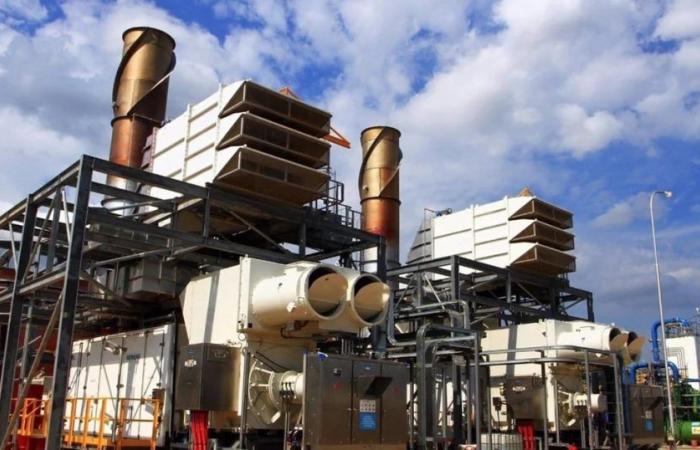The Bolivian Chamber of Hydrocarbons and Energy (CBHE) warned this Tuesday about the “critical situation“which the sector is going through due to the decline in natural gas production and its royalties, and also asked the Government of Luis Arce regulatory changes to promote investments in exploration and exploitation.
The CBHE expressed its “worry” due to the progressive decline in gas production and stated that there is a “critical situation“, despite the fact that companies and the state Bolivian Fiscal Oil Fields (YPFB) develop projects to mitigate this decline.
“Even if the results are positive, they are not enough to substantially increase the supply of natural gas, which is below 40 million cubic meters per day (mm3d),” the entity noted.
Bolivia went from producing about 22,187 million cubic meters of natural gas (mmm3) in 2014 to 13,390 mm3 in 2023, while export royalties fell from more than 6,000 million dollars in 2014 to 2,043 million dollars last year. according to official data.
The CBHE mentioned that the reduction in oil revenue is due to “several factors” such as the production dropthe “proportional share of volumes destined for the domestic market” which differs in cost from export prices.
“The more production falls, the lower the price paid for it and, therefore, the greater the efforts required to make new investments attractive,” the institution noted.
The entity that brings together the companies that participate in the production of hydrocarbons requested that the country provide “conditions for investment in exploration and production, through regulatory changeswhich enable a balance between technical feasibility and economic risk.”
Likewise, the institution said that in this way the country will have “greater volumes of gas to cover the internal market, increase its supply to the external market and achieve greater competitiveness”.
The CBHB warned about the “absence of new projects“so it is not possible”glimpse discoveries and developments in the medium term”.
He also considered that “what is being done” currently belongs to the contracts that were signed in 2007 “within the framework of the nationalization decree and the current Hydrocarbons Law.”
The last certification of Bolivian hydrocarbon reserves, which dates back to December 2018, indicated that the country has 10.7 trillion cubic feet (TCF) of natural gaswhile a report from the Ministry of Hydrocarbons in 2019 established that fell to 8.7 TCF.
For some years now, the Government has been applying the “Upstream Reactivation Plan (exploration and production)” which includes 42 exploratory projects in various regions to increase hydrocarbon production and which could yield positive results later.
Some experts warned that the lack of fuel and the increase in the cost of some foods is due to the lack of dollarsoriginated by decline in income from natural gas exports.
Recently the president of Bolivia, Luis Arcewas criticized for saying that natural gas, which for several years was the country’s economic lifeline, “has been exhausted” and blamed previous administrations for not carrying out new exploration.
(With information from EFE)


